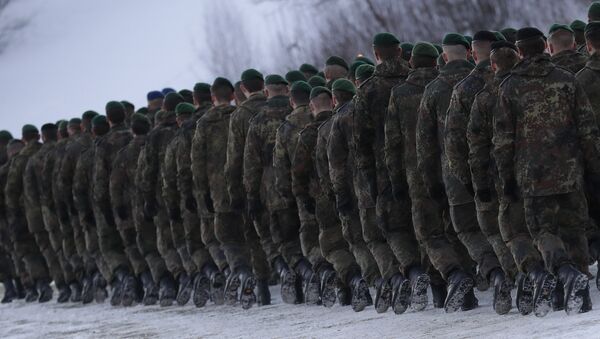The German military counterintelligence service (MAD) is looking into more than two hundred cases of far-right extremism among military ranks, according to a German Defense Ministry letter to the nation's Parliament, reported by local media.
The agency is looking into 53 cases that are said to have already happened in 2017, 143 cases from 2106 and 79 from earlier.
According to the letter, the cases include soldiers openly performing Nazi salutes, saying "Heil Hitler" and abusing their fellow soldiers with migrant backgrounds. The document emphasizes that despite the cases have been known, they have not been dealt with strongly enough.
One particular case involved a soldier saying "Heil Hitler," "Heil our leader" and "Sieg Heil, comrades."
"The case was passed on to the military prosecutor and the public prosecutor's office, but neither an early dismissal nor a service ban took place," the letter reads.
Another case involved a soldier who posted hate calls on a Facebook page associated with the far-right party NPD, including calling for the deaths of "typical foreigners."
According to media reports, the National Democratic Party (NPD) was determined to resemble Adolf Hitler's NSDAP party by the Constitutional court, but the court decided against banning it because the party was said to be too small to endanger German democracy.
The soldier associated with the party was "only disciplined," the Defense Ministry letter read.
Nazi symbols, including both verbal or gestured salutes, are outlawed in Germany and are punishable by up to three years in prison as stated in the German Criminal Code.
The counterintelligence service (MAD) was authorized to check every enlisted soldier for connections with extremist and terrorist organizations in 2016, but the amendment will only come into force later this July, the media report.
In the meantime, 20 radical Islamists were discovered among German military ranks in 2016. The media speculated that they joined the military to get combat and explosives training to carry out terrorist attacks in the country. The issue revived discussions over additional security checks among Bundeswehr-hopefuls and recruits.



